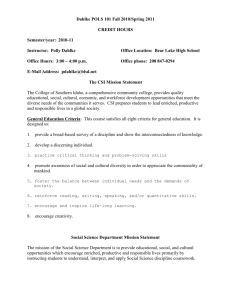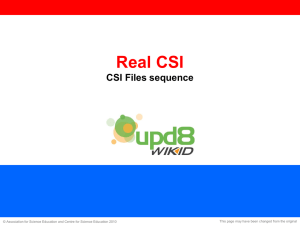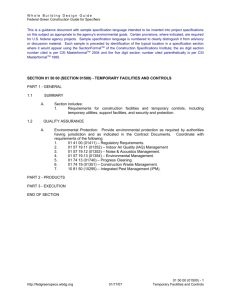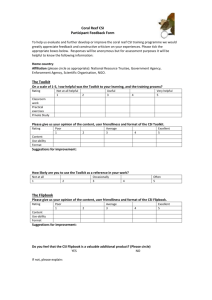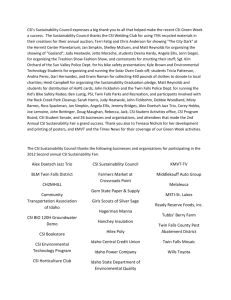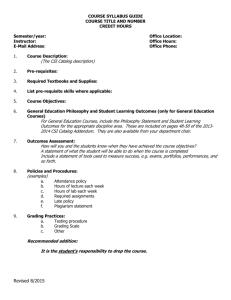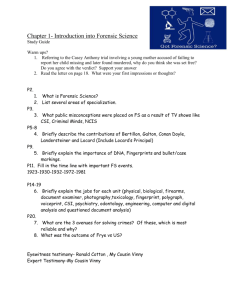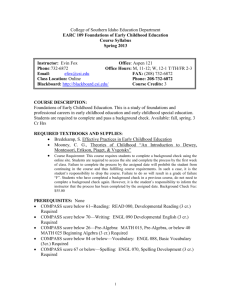Developmental Reading ~ READ 080
advertisement
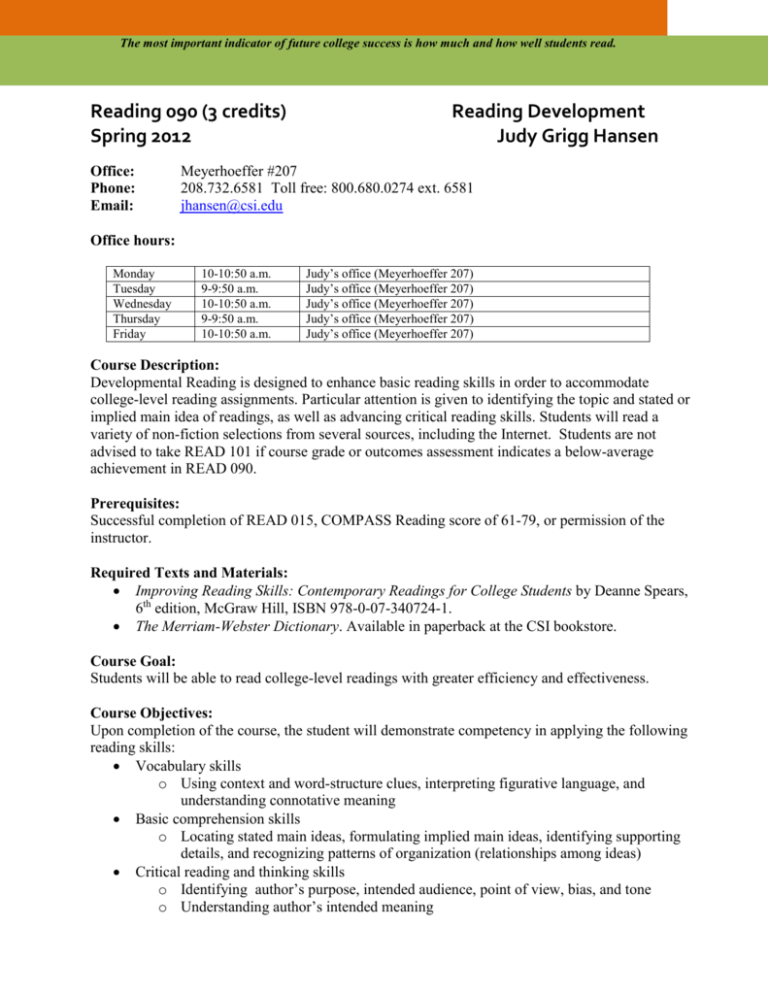
The most important indicator of future college success is how much and how well students read. Reading 090 (3 credits) Spring 2012 Office: Phone: Email: Reading Development Judy Grigg Hansen Meyerhoeffer #207 208.732.6581 Toll free: 800.680.0274 ext. 6581 jhansen@csi.edu Office hours: Monday Tuesday Wednesday Thursday Friday 10-10:50 a.m. 9-9:50 a.m. 10-10:50 a.m. 9-9:50 a.m. 10-10:50 a.m. Judy’s office (Meyerhoeffer 207) Judy’s office (Meyerhoeffer 207) Judy’s office (Meyerhoeffer 207) Judy’s office (Meyerhoeffer 207) Judy’s office (Meyerhoeffer 207) Course Description: Developmental Reading is designed to enhance basic reading skills in order to accommodate college-level reading assignments. Particular attention is given to identifying the topic and stated or implied main idea of readings, as well as advancing critical reading skills. Students will read a variety of non-fiction selections from several sources, including the Internet. Students are not advised to take READ 101 if course grade or outcomes assessment indicates a below-average achievement in READ 090. Prerequisites: Successful completion of READ 015, COMPASS Reading score of 61-79, or permission of the instructor. Required Texts and Materials: Improving Reading Skills: Contemporary Readings for College Students by Deanne Spears, 6th edition, McGraw Hill, ISBN 978-0-07-340724-1. The Merriam-Webster Dictionary. Available in paperback at the CSI bookstore. Course Goal: Students will be able to read college-level readings with greater efficiency and effectiveness. Course Objectives: Upon completion of the course, the student will demonstrate competency in applying the following reading skills: Vocabulary skills o Using context and word-structure clues, interpreting figurative language, and understanding connotative meaning Basic comprehension skills o Locating stated main ideas, formulating implied main ideas, identifying supporting details, and recognizing patterns of organization (relationships among ideas) Critical reading and thinking skills o Identifying author’s purpose, intended audience, point of view, bias, and tone o Understanding author’s intended meaning o Distinguishing fact from opinion o Making logical inferences o Evaluating an author’s argument Grading Percentages: 30% Assignments, projects, quizzes 10% Attendance and participation 40% Tests 20% Final exam/outcomes assessment must be taken in order to pass and receive credit for the class. Students who do not take the final will receive an F for the course. Grading Scale: 90-100 A 80-89 B 70-79 C 60-69 D Below 60 F Note: The grade of NC may be given if a student has completed work for the entire semester but is unable to demonstrate the skills needed in order to advance. Attendance and Participation: For learning to happen, you must take an active role. For our class, you are expected to come to class prepared and ready to learn, which requires that you read the assigned readings and complete the assigned homework before class. Then, you will be ready to contribute to the learning of the class. Since you can only participate if you are prepared and present, an attendance/participation grade will be taken from homework assignments or in-class activities each day of class. You will be marked absent if you are texting or surfing during class. If you must miss class, please notify the instructor by email. No matter the reason for an absence, you are still responsible for the information presented and for any work due. Students missing more than two weeks of coursework may receive an F in the course. If you must miss more than two weeks for emergency reasons, please contact me, and together we will decide whether it is in your best interest to continue in the course. Adding and Dropping Classes: A student may drop a course or all courses prior to the end of late registration (first Friday of the term) without it being recorded on the student’s official transcript. A student-initiated drop after the late registration period is considered a withdrawal, and results in the grade of W. In order to withdraw from one or more courses following late registration, a completed registration form is required. Instructions on the form indicate when a signature of instructor and/or Financial Aid advisor is required. The completed form may be submitted to Admissions & Records or any off-campus center. Students may withdraw from courses until 75% of the course meetings have elapsed. Note: If you are unable to complete the course, it is your responsibility to go to the Records Office in the Taylor Building and drop the class. Deadlines: Work is due at the first of class on its due date whether you are in attendance or not. If you must miss class, please make arrangements for someone to deliver your homework, or email it to me at jhansen@csi.edu. Late daily work will not be graded and missed in-class writings cannot be made up; however, I will drop your lowest five daily grades to cover emergencies. Late work will not be accepted. Outcomes Assessment: The outcomes assessment is the final exam at the end of the semester. Passing this exam will demonstrate that you have developed the reading skills required by this course. You will be eligible to take this exam if you have a class average—including assignments, projects, tests, and quizzes— of 60% or higher. You must receive a 60% or higher on the outcomes assessment or have an average of 60% or higher on class tests to pass. Honesty: Students are expected to be honest in all aspects of their work. All work is evaluated on the assumption that the work presented is the student's own. Students are subject to the grade of 0 for cheating or plagiarism. CSI E-mail: E-mail is the primary source of written communication with all CSI students. Students automatically get a CSI e-mail account when they register for courses. Messages from instructors and other CSI offices will be sent to students’ CSI accounts (NOT their personal e-mail accounts). It is your responsibility to check your CSI e-mail account regularly. Student e-mail can be set up and accessed from http://eaglemail.csi.edu . Disabilities: Any student with a documented disability may be eligible for related accommodations. To determine eligibility and secure services, students should contact Student Disability Services, second floor of the Taylor Building on the Twin Falls Campus, 208.732.6260, or email Scott Scholes, sscholes@csi.edu. Online Course Evaluation: Students are strongly encouraged to complete anonymous evaluations at the end of the course. Evaluations help instructors continually improve courses. Evaluations will be available online at http://evaluation.csi.edu two weeks before the end of the course. Your honest feedback is greatly appreciated. Common Courtesy: Turn off all electronic devices before the start of class. Arrive on time and don’t leave early. Do not surf the Internet or text message during class. Respect the person who is speaking by giving him/her your attention. Testing Center ~ Meyerhoeffer 230: 8:00 a.m. to 9:30 p.m. MTWR 8:00 a.m. to 5:00 p.m. F Current CSI Photo ID Required - No Exceptions! Please plan to arrive at least one hour prior to closing. Learning Assistance Center ~ Meyerhoeffer 201: The Learning Assistance Center is open Monday-Friday from 8 a.m. to 5 p.m. Tutoring is available on a drop-in basis from faculty and peer tutors. Tutoring schedules are available at www.csi.edu/ip/adc/lap. Students may also use computers and study tables. Tentative Schedule of Major Assignments: Week Assignment Week 1 Pretest; introduction Week 2 Context clues and dictionary use Week 3 Dictionary use and main ideas Week 4 Figurative language Weeks 5 Main ideas Week 6 Implied main ideas Week 7 Implied main ideas Week 8 Midterm project Week 9 Supporting details Week 10 Inferences Week 11 Writing patterns Week 12 Writing patterns and transitions Week 13 Fact and opinion/purpose and tone Week 14 Evaluating arguments Week 15 Understanding graphics Week 16 Review Finals Week Final Exam

